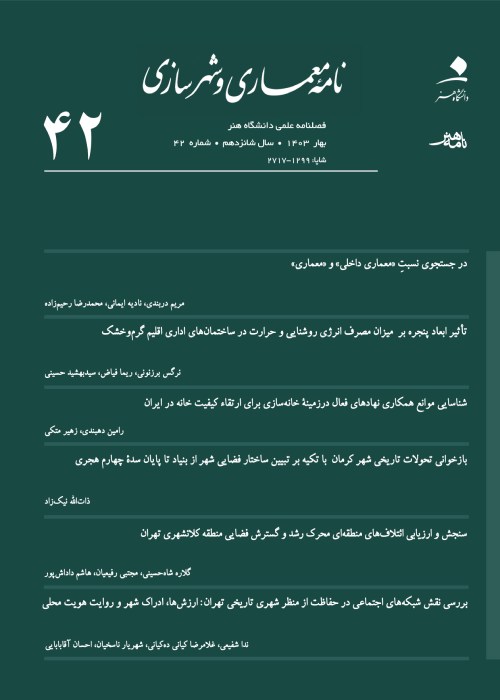How Iranian Grassroots May Alter the Formal Planning? A Case Study in Shush Neighborhood
It seems that the unknown conditions and undefined rights often play a role in the subaltern movements, in which the practical and unconscious actions appear to be prevalent. Planning theory, due to its rational roots, has typically been critical of the unconscious. However, the unconscious and practical knowledge is usually identified as a source of intuition in the everyday culture of Iranians (and probably many other cultures). After the global spread of the planning profession, culture has lost its former significance in formal planning, but probably persists in everyday urban life. Although there have been many studies on "insurgent movements", it seems that they have less focus on the probable effect of insurgency on formal planning. The Structuration theory of Giddens shows how the practical (but unconscious) knowledge can become formal and get conscious. Drawing on this theory, some of the recent debates on the informal urbanism and insurgent movements in the so-called "developing" countries will be reviewed until the structuration potential of insurgency become clear in them. In this article, this potential is studied within the problem-ridden Shush neighborhood of Tehran. In this case study, after a review of the current situation of Shush, the viewpoints of different parties (formal and informal) regarding the problems and the solutions they adopted are assessed and compared. The information was gathered through direct observation, news review, interviews with local officials and social activists (or by listening to their speeches), and a review of the social network accounts of the Imam Ali Society, which has had a prevalent and multi-faceted presence in this neighborhood for a significant time and could be regarded as a representative of other NGOs. For the comparison, we draw upon the logic of factor analysis, after it is customized to the conceptual and qualitative setting of this study. This comparison showed that while formal planning could not identify the essence of many of the problems for years, NGOs (namely Imam Ali society) were able to identify the major problems earlier and take more appropriate actions. It also shows that those actions are incorporated into formal planning institutes, at least at the local level. It is argued that this process can be identified as a Structuration process in which the informal and practical knowledge becomes formal. This argument is confirmed by our observations and information. While the municipality's administration has emphasized on the collaboration with NGOs (like other reviewed cities in the so-called developing countries), the informal section seems to prefer to remain insurgent (namely Imam Ali Society), and the fact that it is insurgent is sometimes regarded as its advantage. Thus, it can be concluded that this process of structuration takes place without any logical media or conceptual communication. Referring to our theoretical review, it can be said that it is precisely the unknown and vague that seems to be the prerequisite of formalizing the practical knowledge. At least where the communicative democracy is not deeply rooted in the public organizational culture, the clarity and legal definition might oppress the structuration.
- حق عضویت دریافتی صرف حمایت از نشریات عضو و نگهداری، تکمیل و توسعه مگیران میشود.
- پرداخت حق اشتراک و دانلود مقالات اجازه بازنشر آن در سایر رسانههای چاپی و دیجیتال را به کاربر نمیدهد.


